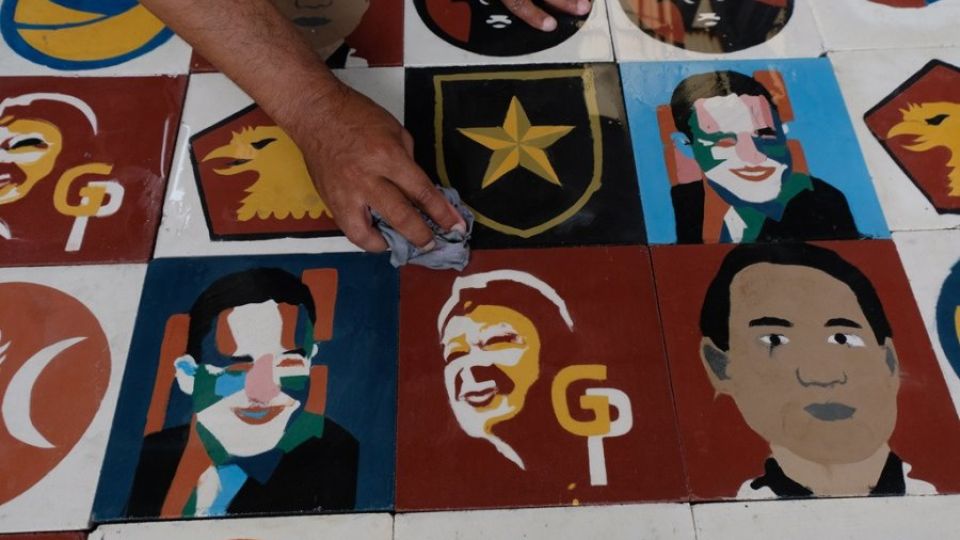January 3, 2024
JAKARTA – The nation’s presidential candidates and their running mates have turned to the hugely popular video-sharing and live-streaming platform TikTok to solicit the support of young Indonesians, who make up the majority of the voter roll for the February election.
Presidential candidate Anies Baswedan made his debut on TikTok on Thursday, days before the country celebrated the New Year’s Eve. He hosted a live stream from East Java called “Temani Saya di Jalan” (accompany me on the road) that drew 300,000 viewers.
He went live for a second time on Saturday and exceeded his initial audience with some 420,000 viewers.
Following Anies’ appearance on TikTok, a fan account appeared on X, formerly Twitter, evoking the style of pages dedicated to K-Pop idols. The account has shared clips of Anies’ two live streams along with captions in the Korean script. It had nearly 100,000 followers as of Tuesday.
Commenting on his newfound success on social media, Anies said on Sunday that he aimed to continue his activities on TikTok and that he would be open to discuss any topic during his live streams, as quoted by kompas.com.
During his live stream, Mahfud encouraged viewers to strive for personal improvement in the upcoming year.
Like Anies, Mahfud looks set to continue his social media foray, with a deputy campaign manager for the Ganjar-Mahfud pair saying that TikTok would be an effective way for them to reach out to more voters.
“With this strategy, we hope to reach out to as many [people] as we can,” said Andika Perkasa, a former Indonesian Military (TNI) commander, as quoted by kompas.com.
According to a May report by independent data aggregator DataReportal, TikTok, with close to 110 million users, is the third-most popular content-sharing platform in Indonesia. Its national audience is the second-largest in the world.
Campaign banter
While Anies and Mahfud have been making their way into TikTok, VP candidate Gibran Rakabuming Raka, the running mate of presidential candidate Prabowo Subianto, has made waves on his X account.
Gibran, who at 36 years old is by far the youngest name on the presidential ballot, regularly shares internet memes with his 1.2 million followers, including some that make fun of him, such as memes referring to him by the Indonesian name of Samsul and those comparing him to Ganjar’s son, Muhammad Zinedine Alam Ganjar.
Gibran’s showing at the first vice presidential debate on Dec. 22 also inspired various memes featuring the slang phrase “let him cook”, after he tweeted the words himself shortly after the debate ended. The phrase is used to encourage someone to give another sufficient time or space to perform a task that they may prove to be good at.
Asked on Tuesday when he would make his debut on TikTok, Gibran said he would first consult with his running mate Prabowo Subianto.
Prabowo, the frontrunner in the presidential race, has been the subject of a number of internet memes as well, mostly depicting him as gemoy (adorable). Throughout the campaign season, Prabowo and his team have sought to transform his image from one of a pugnacious military man to one of a gemoy character with a penchant for spontaneous dance.
Campaign strategies
Data from the General Elections Commission (KPU) shows that some 52 percent of the country’s 204 million total registered voters are younger than 40. A third of all registered voters are millennials, while 22 percent belong to Generation Z.
With younger people comprising a majority of the voter roll, all three candidate pairs have tilted their campaign efforts toward young voters.
On a tour of Central Java last week, Ganjar debuted a series of campaign promises aimed at improving national education and eradicating poverty. They included a “one university graduate for each poor family” policy, as well as policies to make vocational school and internet access free.
Similarly, the Prabowo-Gibran campaign manifesto includes a number of youth and child-oriented policies, including plans to provide free lunches and milk at school, improve school infrastructure throughout the country and add more social welfare programs.
Meanwhile, Anies and his running mate Muhaimin Iskandar have been hosting Desak Anies (challenge Anies) and Slepet Imin (hit Muhaimin) public discussions in various parts of the country to draw young people into policy discussions. The events invite members of the public to ask the candidates any questions they like, or to make suggestions or express criticism.


